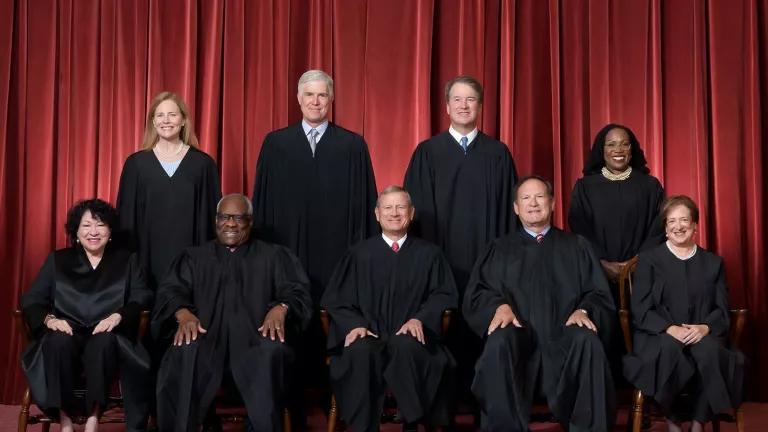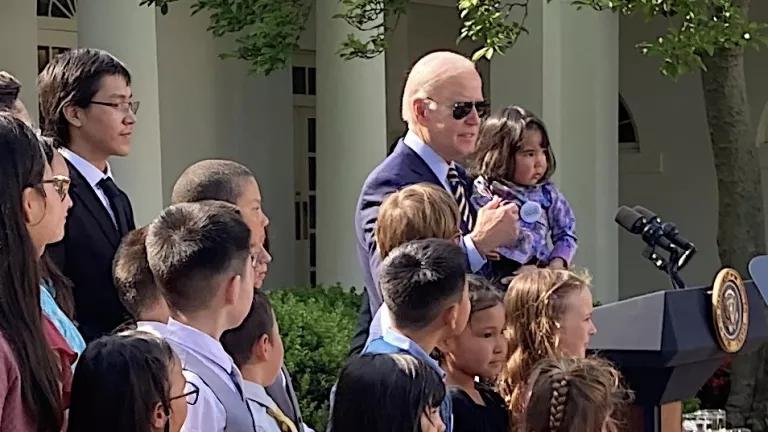The human race is challenged more than ever before to demonstrate our mastery, not over nature but of ourselves. -- Rachel Carson (1907-1964)
Last month marked the 50th anniversary of the publication of Silent Spring by Rachel Carson, one of the most influential books of the 20th century and one of the most passionate pleas for the conservation of nature and restraint in tampering with the processes that govern life ever written. As a recent New York Times magazine piece illustrated, Carson’s reward was a leading place in the pantheon of environmental leaders and the undying and hysterical hatred of the chemical industry’s mouthpieces and apologists.
The vilification of Rachel Carson was unique for its time, and remarkable to this day for its longevity and ferocity: she is still the focus of attacks half a century after the publication of her book and 48 years after her death. But her place in history and in the hearts of environmentalists today is assured. Her work became part of the awakening of a generation that with Earth Day (and the founding of NRDC) seven years later initiated a global movement that, across cultures and deep divisions on other matters, is one of the few somewhat unifying currents in global politics today.
“There would be no peace for me if I kept silent,” she wrote to a friend in 1958, explaining why she wrote a book she knew would open her to relentless and bitter attacks. Knowledge is a powerful thing and there is an ethical burden for moral people to act in when they realize the consequences of inaction. Carson, a lyric writer on natural history, understood that she was required by the facts and her own conscience to help others understand what was happening and what could be done about it. She also knew she possessed the skills to help others grasp the essence of the issue.
Today, as we grapple with the unprecedented challenge of global climate change Rachel Carson’s admonitions to conscience seem more relevant than ever. The science driving the need for policy is overwhelming, and the opposition from vested interests is as hysterical and condemning. But because of Rachel Carson’s leadership – which NRDC and other organizations have built upon in the decades since her death in 1964 – the public no longer trusts the vested interests as they did when every home in the country had several cans of pesticides under the kitchen sink.
A poll released this week by George Mason and Yale Universities showed greater than 70% of Americans believed global warming is contributing to worsening weather across the continent and illustrates just how resistant public opinion is to climate denial even in the face of a relentless, frantic drumbeat coordinated and funded by the fossil fuel industry. That is in part a legacy of the public consciousness that Silent Spring, and the movement it helped launch created.
We know there is a crisis and time is running out. The question is, what will we do about it? Knowledge, as Rachel Carson so bravely demonstrated, imposes a moral burden on us to act and to sound the alarm so others may act. As Rachel put it in a letter to a friend: “The beauty of the living world I was trying to save has always been uppermost in my mind – that, and anger at the senseless, brutish things that were being done. I have felt bound by a solemn obligation to do what I could – if I didn’t at least try I could never again be happy in nature.”
Rachel Carson is a hero to me and should be to everyone who cares about the kind of world we leave to generations to come. The beauty of the natural world we are trying to defend should be uppermost in our minds, as should an understanding, based on an unprecedented scientific consensus, that the forces already set in motion are grindingly relentless and will require a global response to slow and eventually reverse.



